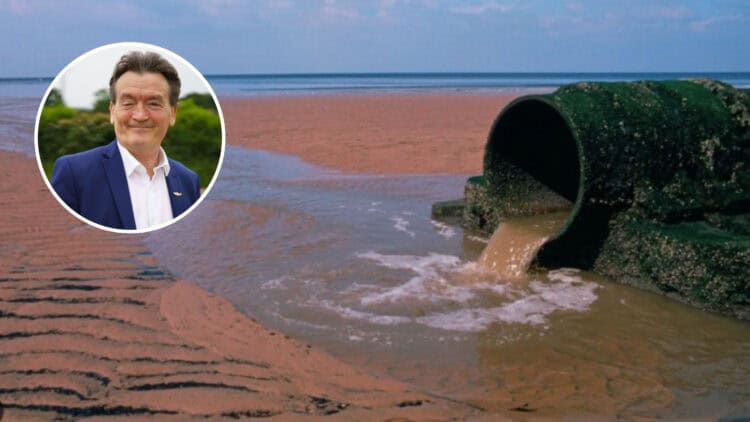The Labour government has unveiled the Water (Special Measures) Bill in Parliament, designed to enhance the regulatory powers of Ofwat and the Environment Agency against water companies that harm the environment and fail their customers. However, the bill has been criticised for its perceived inadequacy, with environmental campaigners and opposition parties arguing that it doesn’t go far enough.
Feargal Sharkey, the former Undertones frontman turned environmental activist, has expressed his disappointment with the government’s efforts to address pollution in the nation’s waterways. Sharkey, who is organising a march next month to protest the state of Britain’s rivers and seas, criticised the new government’s measures as insufficient. “This doesn’t even touch the sides. It’s not even first steps,” he remarked, indicating that the proposed measures fall short of what is necessary.
The Conservative Party has accused Labour of merely repurposing measures that were originally implemented during their tenure, suggesting that the current government is attempting to take credit for past initiatives.
The new legislation proposes severe penalties for water company executives who obstruct environmental investigations, including potential jail terms of up to two years. It also seeks to ban bonuses for water bosses who fail to meet high environmental standards amidst the ongoing sewage crisis plaguing Britain’s waterways.
Mr. Reed, representing the government, highlighted the public’s frustration with the state of national water bodies: “The public are furious that in 21st-century Britain, record levels of sewage are being pumped into our rivers, lakes, and seas. After years of neglect, our waterways are now in an unacceptable state.”
The bill also includes provisions for automatic and significant fines for violations, empowering regulators to impose penalties more swiftly without resorting to protracted investigations. Additionally, it mandates independent monitoring of every sewage outlet and requires water companies to publish real-time data for all emergency overflows. Discharges must be reported within an hour of the initial spill.
Charles Watson, chair and founder of River Action, acknowledged the government’s recognition of the pollution issue but cautioned that the announced measures might be insufficient to address the core problems. “It is obviously a relief to finally see the true horrors of years of incessant pollution and the accompanying abject failure of our regulators to do anything about it being candidly acknowledged by our government of the day,” said Watson. However, he noted that simply curtailing executives’ bonuses, although appealing, would not solve the underlying causes of Britain’s poisoned waterways.
You may also like: Outrage as MPs depart commons ahead of crucial Grenfell statement







